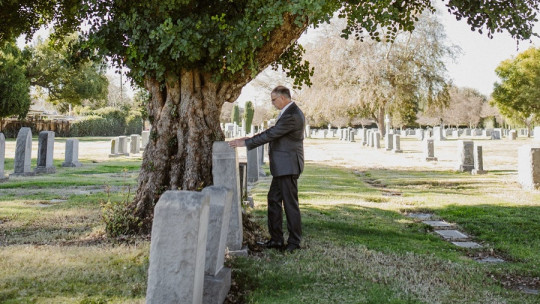
The human being is a transcendent being, that is, The needs of the human animal go beyond the mere satisfaction of basic needs
All organisms are programmed to avoid pain and pursue pleasure, but humans are not satisfied with just surviving, we want to feel that we have a life and that this life has a purpose.
We can—and often do—choose to forego pleasure and expose ourselves to adversity in pursuit of some higher goal. The student who gives up having fun and dedicates hours of study to learning a profession to which he is committed is an example of this need to “go further.”
The same can be said of the athlete who faces laziness, fatigue, inclement weather or any other difficulty in training because he is determined to beat his mark.
No other creature suffers like humans do because our mind has evolved in such a way that we can be distressed by things that are no longer there and we can also suffer by things that are not yet.
We can learn from the past and we can plan for the future and that (wonderful) ability is, paradoxically, the cause of many of our ills. And there is no turning back, once one develops the ability to reason, based on our language, this process cannot be reversed. Then, painful memories haunt us and our catastrophic anticipations about the future haunt us and this causes us suffering.
One cannot amputate your thought; Anyone who has tried will have already discovered that you cannot escape from your own mind, at least not all the time.
One can be distracted for a while, of course, but sooner or later these thoughts end up creeping into consciousness.
A labyrinth is a place where one gets lost, the mind can be a labyrinth, one can get lost in one’s own mind. AND one can lose oneself in the process of avoiding suffering trying to escape from his own mind.
What can we do then?
Let’s try to get out of the maze, keep reading. We can talk about two types of pain: clean pain and dirty pain:
The clean pain
We call clean pain all those discomforts inherent in being alive It can hurt in the form of thoughts, emotions, and physical sensations. Here come physical pain, illness, loss and all the unpleasant emotions and feelings that one naturally ends up experiencing at some point in their life.
Every day we deal with some of these setbacks and although we can make attempts to avoid them, it is impossible not to feel them at some point.
Nevertheless We describe this type of pain as “clean” because it connects us to life, it’s the price we pay for being alive, it’s circumstances we have to deal with as we try to pursue our goals. Clean pain is connected to our values, understanding as “values” everything that makes our life valuable.
Values, therefore, are intrinsically subjective, they are not the same for everyone. Being a good father to my children, developing my talent and excelling in my profession, taking care of a forest… all of these can be values if this makes our life have meaning.

Clean pain is the disappointment I feel when I don’t achieve what I set out to do, but it is part of the process, if I want to experience the pride of achieving my goals I must be willing to embrace failure.
Clean pain is also the pain of loss. The deep sorrow one feels when saying goodbye to a loved one It is unequivocal proof that this person was loved and the time shared was a gift.
Loving something implies being exposed to the possibility of losing it, what you love is something that adds value to life and the fact of losing it produces pain.
Clean pain is also fear, uncertainty and doubts when I try to follow my path, when I undertake a project, when I take risks.
Clean pain is, in short, everything that makes me suffer but that I cannot avoid.
The dirty pain
We are not always willing to embrace clean pain, it is when we try to avoid it that dirty pain occurs.
Dirty pain is the suffering caused by breaking our values It occurs as the consequence of giving up what we want in life, for not being willing to deal with clean pain. I experience this pain when I find myself locked in my own house, alone and sad, letting life pass by, when in reality I would like to spend time with other people, but I don’t want to expose myself to the possibility of being hurt, shame or criticism.
I experience dirty pain when I dream of traveling to exotic places but I don’t dare get on a plane and so my desire to feel that everything is under control and to feel safe locks me in a monotonous and gray life.
It’s that pang of disappointment and that constant doubt of what I could have achieved when, having had the opportunity, I preferred not to study that career that I was passionate about because I wasn’t sure I could achieve it or so as not to disappoint my parents, who had different plans. to my wishes.
We cannot choose not to suffer, but we can choose the way we suffer.
We can choose clean pain or dirty pain. We may be willing to embrace life with its lights and shadows, or we may not be
We often want to cheat, we want to escape from discomfort but without giving up what we want in life. There are no shortcuts: choosing is giving up.
Breaking with our values will free us for a time: we will not have to get up early, make an effort, expose ourselves, get tired, etc.
But by giving up what really matters to us, it won’t take long for us to question the direction of our lives. Dirty pain makes a person feel disoriented, lost, and purposeless.
Often the person feels stuck, without direction. When one spends a lot of time in this state you can lose sight of what gave meaning to your life this leads to a deep feeling of emptiness and despair.
We can run away, but that doesn’t come free
It is very true that sometimes we complicate our lives by choosing complicated decisions, choosing paths that are difficult, when there are simpler and more convenient options.
But on the other hand, the easy option is not always the best option. Running away is easy, coping often isn’t (and it gets harder the more we choose to run away).
We can deliberately run away from that which scares us, that is painful, that makes us lazy or ashamed, that is challenging, that is unknown and makes us feel insecure, pushing us out of our comfort zone. We can run away from this, or at least we can try to run away from it and we can spend our lives running away from it, but then we will have to deal with the consequences.
Sometimes this escape is camouflaged: when one lives at an accelerated pace, in a spiral of frenetic activity, always immersed in new projects.
A priori, no one would say that this person is fleeing, rather it seems that he is pursuing some objective. But sometimes this incessant activity masks a difficulty in stopping. Stopping is unsustainable for some people, as it reveals our ghosts. A packed agenda, without blank spaces, is sometimes a way to escape. A work addiction is sometimes an excuse, a pretext for not dealing with other issues.
So we can run away from our discomfort or we can face it accept it and even listen to it, because maybe it has something to tell us.
Escape has a price. The price of living on the run and giving up that other life, the one we could have if we gathered the courage to face all that discomfort in order to pursue what is valuable to one and gives meaning to one’s life.
Giving up what we really want because we are not willing to assume the cost of facing pain entails not only that loss, as a consequence the mind often hits the person with all kinds of reproaches, which we often try not to listen to (yes, we continue to avoid). This ends up producing a huge emptiness, a feeling of loss of life orientation and a feeling of constant dissatisfaction. This is dirty pain.
Sometimes it takes the form of invisible phenomena that only those who suffer from them feel (thoughts, memories, doubts, emotions, feelings…) and that can go unnoticed, but sometimes this attempt not to suffer leads to more obvious consequences such as an unproductive life marked by procrastination, an impoverished social circle, a relationship broken, a neglected family and in very dramatic cases it can lead to addiction.
Unconditionally accepting all that life has to offer (the sweet and the bitter, the pleasant and the unpleasant) truly puts us in touch with life and makes us truly free.
Free for what?
Free to live a life guided by our own values and stop giving fear, pain, frustration and all our ghosts the helm of the decisions we make.
The path of virtue is very narrow and the path of vice is wide and spacious.. Miguel de Cervantes Saavedra.








